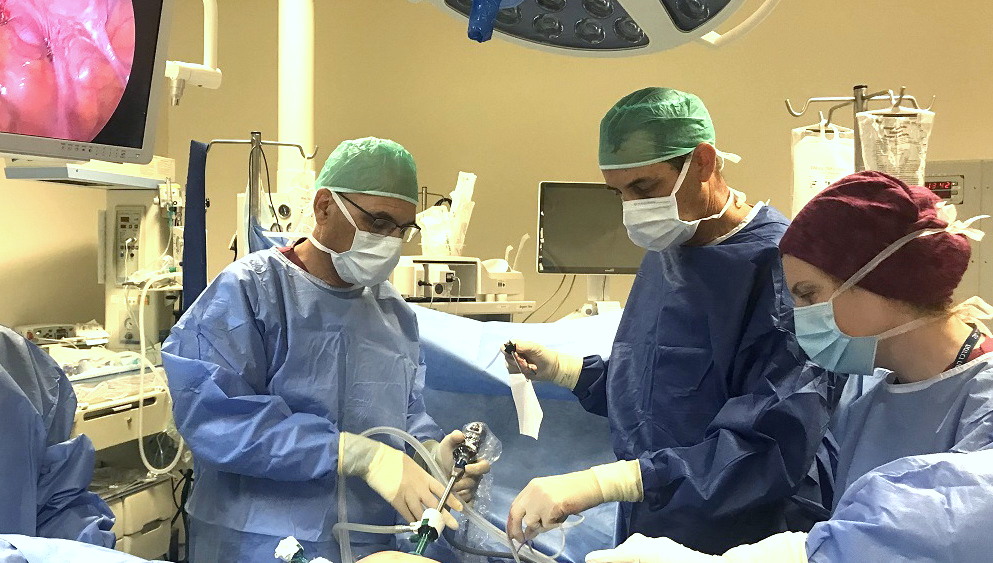The Gynecology and Obstetrics Department at Hillel Yaffe Medical Center has recently begun to perform minimally invasive gynecological surgery, known as vNOTES (vaginal natural orifice transluminal endoscopic surgery). This technology enables access to the abdominal cavity through natural body openings (the vagina in the case of gynecological surgery) without any incisions in the abdominal wall.
With the old methods, such surgery was performed with the “open” approach, meaning patients had a large incision in their abdominal wall, of around 10-15 centimeters. During the 1990s, a revolution came about regarding gynecological operations, and they began to be performed laparoscopically (minimally invasive method), which required 3-4 small incisions in the abdominal wall, through which the required equipment was inserted, together with a camera. Later, additional laparoscopic methods were developed, using one incision through the umbilicus, surgery which is performed both at Hillel Yaffe and at other hospitals.

Prof. Ilan Bruchim (left) and Dr. Benny Feiner during the innovative surgery
“The brand new method is a significant breakthrough both medically and technologically, and enables hysterectomies and other surgery as aforementioned, without any incision at all. The entire surgery is performed vaginally, using a camera and special equipment,” explains Director of the Gynecology and Gyneoncology Unit, Prof. Ilan Bruchim, who learned the method in Belgium from the most experienced surgeon for this method and one of the leading developers and proponents of the approach, Prof. Jan Baekelandt.
This method has several significant advantages over other methods. The advanced means available to the surgeon provide him with a broad and optimal view to carry out a safe hysterectomy with minimal pain, bleeding, and complications. Likewise, the organs are removed vaginally, without any scarring of the skin. In addition, the fact that the entry into the abdominal cavity and pelvis is not through the abdominal wall reduces the possibility of harming large blood vessels or the intestines, particularly for women with previous abdominal or pelvic surgery. In such situations there is a high risk of the presence of “adhesions” between the abdominal wall and the internal organs, increasing the risk factor of the surgery. With the new method, in contrast, the problematic area is essentially bypassed and the pelvic cavity accessed directly.
These complex operations are performed at Hillel Yaffe by Prof. Bruchim and Dr. Benny Feiner, Director of the Urogynecology and Pelvic Floor Unit, who participated in the first official course held in Israel to learn the new method. “We performed several surgeries for removal of the uterus, ovaries, and Fallopian tubes using this method, and the results were satisfactory. The operations were successful, the recovery time was quicker, the rate of bleeding is low, hospitalization is shorter, and the patients also expressed high satisfaction after the surgery,” notes Prof. Bruchim.
In conclusion, explains Prof. Bruchim: “The vNOTES is a breakthrough technique in the field of minimally invasive surgery. This is a safe method with the best results, used today in various gynecological surgeries, meaning removal of the uterus, ovaries, Fallopian tubes, and repair of vaginal wall prolapse”.











.jpg?BannerID=39)

